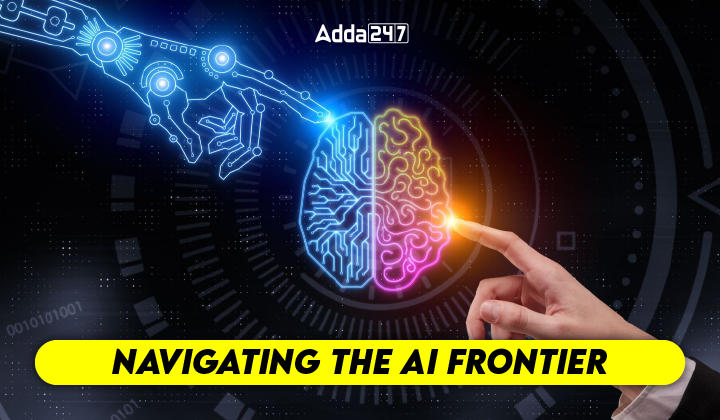Table of Contents
Context: As Artificial Intelligence (AI) becomes increasingly integrated into political campaigns worldwide, its influence on voter engagement, misinformation, and election outcomes is profound, heralding a new era in electoral strategies and presenting both opportunities and challenges for democracies globally.
The Rise of AI in Political Arenas
- India’s BJP has adeptly harnessed AI to make Prime Minister Narendra Modi’s speeches accessible in multiple languages, illustrating AI’s capacity to transcend language barriers in politically diverse settings.
- The evolution of India’s campaign tactics mirrors a broader trend towards embracing novel technologies, from the widespread use of telephony in the 90s to the innovative application of holographic technology in 2014, leading up to today’s AI-centric strategies.
Revolution in Campaign Communication
- The 2014 elections in India were notably shaped by the strategic use of social media, earning the distinction of being called the “Facebook elections” due to substantial digital investment and the pivotal role of social networks in engaging the electorate.
- Research pointing to a correlation between a political entity’s social media engagement, particularly Facebook ‘likes’, and electoral success highlights the significant role social media plays in reflecting political momentum.
- The emergence of WhatsApp in 2019 as a critical tool for disseminating targeted political content and organizing efforts signifies the dynamic nature of digital campaign tactics.
AI’s Double-Edged Sword in Global Elections
- The emergence of AI-generated disinformation, including deceptive robocalls and manipulated videos, in various countries underscores the complex impact of AI on shaping voter perceptions and the potential for influencing election outcomes.
- Such incidents reveal AI’s dual capability to expand outreach while also generating misleading content, posing ethical and practical challenges in the political context.
Evolving Campaign Methodologies with AI
- AI’s promise extends beyond the realm of misinformation, offering sophisticated tools for campaign strategy optimization through enhanced data analytics and precise voter targeting, thereby elevating the efficacy of political engagement.
- The rapid advancement of AI technologies calls for immediate and thoughtful responses from both policymakers and technology firms to address the potential dangers of AI-facilitated content in politics.
Navigating the Ethical Terrain of AI in Politics
- In reaction to the exploitative use of AI, such as the imitation of U.S. President Joe Biden through AI in robocalls, there has been a move towards establishing legal frameworks and corporate pledges to deter deceptive AI applications.
- The enduring challenge is to find an equilibrium between harnessing AI’s innovative potential for campaign strategies and ensuring the preservation of election integrity and the accuracy of information.
Projections for AI’s Political Implications
- With AI’s trajectory set to continue its rapid development, a global commitment to vigilance and adaptability is essential to mitigate its potential misapplications in political settings, while also capitalizing on its advantages for fostering democratic participation.
- The path forward for AI in electoral contexts is anticipated to be defined by technological resilience, ethical guidelines, and regulatory actions crucial for protecting the democratic process.
Conclusion: The integration of AI into election strategies represents a significant transition in political campaigning, filled with both groundbreaking possibilities and notable risks. As the global community navigates this new digital era, maintaining a balance between innovation and ethical integrity is essential for shaping the democratic elections of the future.



 TSPSC Group 1 Question Paper 2024, Downl...
TSPSC Group 1 Question Paper 2024, Downl...
 TSPSC Group 1 Answer key 2024 Out, Downl...
TSPSC Group 1 Answer key 2024 Out, Downl...
 UPSC Prelims 2024 Question Paper, Downlo...
UPSC Prelims 2024 Question Paper, Downlo...




